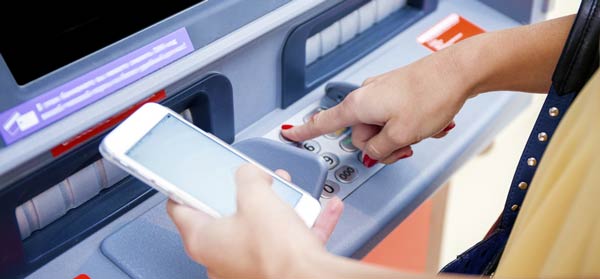Banking just keeps getting easier. From the time when you could only access your money during the week by physically going into your local branch, to the advent of ATMs, credit cards, phone banking and internet banking. But with each new development that has improved our access to our money, there have also been security risks along the way.
The latest and easiest way to keep track of your money is to bank using your smartphone. You can log in to banking sites via mobile internet connections, use banking apps that link directly to your financial accounts or even transfer funds via email or social media.
The banks wouldn’t make this technology available if it wasn’t safe, but there are a number of things you need to remember to protect yourself when you are using your smartphone or device for banking.
1. Download the updates
W some applications you have on your phone or device, you can afford to be a little lax, but when it comes to your money you want to ensure you are checking for updates frequently. These changes will be there to fix any potential security breaches. If you let these updates pass, you will be vulnerable to hackers who aim to exploit any software weaknesses. It is also best to download any updates directly from your bank’s official website rather than the app store to avoid any hoax applications that may try and steal your account numbers or passwords.
2. Sign up for account alerts
Most banking apps allow you to sign up for alerts whenever there is activity on your account. You should definitely activate this feature as you will be able to spot any fraudulent charge or withdrawal immediately.
3. Set a strong password
This is the obvious stuff and most banking apps won’t allow you to set a weak one, but try to make your password as difficult to guess as possible. Microsoft’s advice when it comes to setting passwords is to have eight or more characters featuring a combination of numbers, letters and symbols or punctuation marks.
4. Protect your connection
The number one way scammers and hackers will try and steal your data is by setting up false connections. Banks have strong security precautions set up at their end, if there are weaknesses that allow fraudulent transactions, they will most likely come from your end. To that end, you should never use public wifi for accessing your banking apps and you should never send sensitive information to your bank via text message.
If you would like more information the Australia Federal Police has a mobile banking fact sheet available at afp.gov.au.
Do you bank using your smartphone? Is this something you will consider in future? Share your experiences in the comments section below.
Related articles:
Aussie mobile banking scam
The future of banking
New sophisticated SMS banking scam

